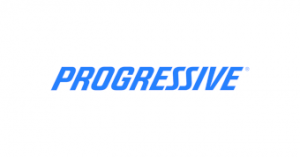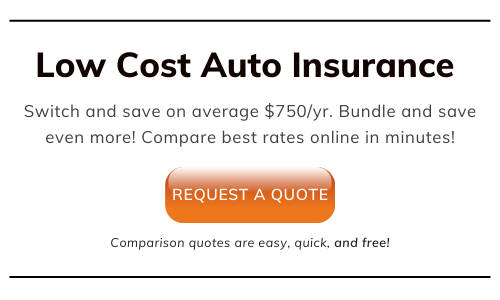Cheap Car Insurance in Hawaii
Free Insurance Comparison
Compare Quotes From Top Companies and Save
Secured with SHA-256 Encryption
Kristen Gryglik
Licensed Insurance Agent
Kristen is a licensed insurance agent working in the greater Boston area. She has over 20 years of experience counseling individuals and businesses on which insurance policies best fit their needs and budgets. She knows everyone has their own unique needs and circumstances, and she is passionate about counseling others on which policy is right for them. Licensed in Massachusetts, New Hampshire,...
Licensed Insurance Agent
UPDATED: Mar 19, 2024
It’s all about you. We want to help you make the right coverage choices.
Advertiser Disclosure: We strive to help you make confident insurance decisions. Comparison shopping should be easy. We are not affiliated with any one insurance provider and cannot guarantee quotes from any single provider.
Our insurance industry partnerships don’t influence our content. Our opinions are our own. To compare quotes from many different insurance companies please enter your ZIP code on this page to use the free quote tool. The more quotes you compare, the more chances to save.
Editorial Guidelines: We are a free online resource for anyone interested in learning more about insurance. Our goal is to be an objective, third-party resource for everything insurance related. We update our site regularly, and all content is reviewed by insurance experts.
You’re on a mission to secure the cheapest car insurance in Hawaii, but you also know that each insurance carrier may offer you a different rate.
How do you make sure that the policy you eventually accept provides the most affordable price for the coverage you want to maintain?
Finding the cheapest car insurance in Hawaii starts with online reviews and car insurance quotes.
If you have at least three competitive quotes, you may find it easier to negotiate with individual companies for lower premiums.
After shopping around, you should feel more confident in selecting the one insurance carrier that delivers the coverage, price, and customer service that you are seeking.
Cheapest Car Insurance in Hawaii
Here are the top 4 providers of cheap car insurance in Hawaii:
Progressive

From discounts for low-risk drivers to offering quote comparisons on its website, Progressive seems to stay one step ahead of its competitors.
The company has been in operation since 1937, and its “core values statement” includes a commitment to providing complete and accurate financial reporting promptly.
Liberty Mutual
Liberty Mutual is one of the largest insurance companies in the nation, and it offers a variety of discounts that are specific to Hawaii.
Discounts for students attending the University of Hawaii or BYU Hawaii and The Teachers’ Auto Insurance Program allows Liberty Mutual to give back to the Hawaiian community.
USAA

If you’ve served in the military or are from a military family, the chances are high that you’ll qualify for auto insurance from USAA.
The company is headquartered in San Antonio, Texas, and maintains 12 offices across the United States plus two international offices.
USAA employs more than 33,000 people, and approximately 1 in 4 are military spouses or veterans.
Allstate

As one of the largest car insurance providers in the United States, Allstate can protect everything from your vehicles and motorcycles to your home, condo, and business.
The Allstate business model rests on local agents who build personal relationships with customers.
You can find Hawaii agents in Hilo and Kailua Kona.
Enter your ZIP code below to view companies that have cheap insurance rates.
Secured with SHA-256 Encryption
How Much Is Car Insurance in Hawaii?
With the average premium under $762.72, this state boasts below average pricing even with a slight increase from year to year.
- Average Cost of Car Insurance In Hawaii: $762.72
- National Average Cost of Car Insurance: $889.01
What Factors Affect the Cost of Car Insurance in Hawaii?
If you’re wondering why there is such a big difference in rates from one state to another, it comes down to a short list of location-specific factors, including traffic conditions, vehicle theft rates, average disposable income, and population density.
Traffic Conditions

Car insurance companies look at traffic density and fatal accident rates to assess how much risk comes with drivers from each state.
Going back to that data collected by the National Association of Insurance Commissioners (NAIC), we find that the national average is 0.13 fatal accidents for every 1,000 registered vehicles.
With an average of 0.07 accidents per 1,000 registered vehicles in 2014, Hawaii is considered safer than average for drivers, which could benefit you when securing car insurance quotes.
Hawaii also ranks well when you consider the average number of miles traveled by each registered vehicle.
The assumption is that more time on the road means both more traffic and increased opportunities for accidents.
The national average in 2014 was just over 12,000 miles, but the average vehicle in Hawaii traveled approximately 7,500 miles that year.
Anyone trying to purchase the cheapest car insurance in Hawaii should also consider the overall traffic volume in some Hawaiian cities.
In 2014, there were more than 2 million miles traveled for every mile of highway, which is substantially higher than the national average of approximately 720,000 miles.
Hawaii is made up of small islands with less roadway and more tourists than most U.S. states, so the roads in some major cities are easily crowded.
Vehicle Theft Rates
Annual vehicle theft rates tell insurers how likely it is that you may report one or more of your vehicles stolen, leading to an insurance claim.
The Federal Bureau of Investigation (FBI) gives us a look at that data in its annual Crime in the United States report.
The 2016 report reflects roughly 396 car thefts per 100,000 inhabitants in Hawaii, which is higher than the national average of approximately 227 car thefts.
There were just over 5,600 car thefts throughout Hawaii in 2016, a statistic that can lead to a dramatic increase in your car insurance rates if you live in the state and drive one of the vehicles most commonly stolen.
The ten cars topping the chart for 2018 include (in order of theft incidents):
- 2000 Honda Civic
- 2006 Ford Pickup
- 1996 Honda Accord
- 2017 Toyota Tacoma
- 2001 Honda CRV
- 2010 Toyota Corolla
- 2003 Toyota Camry
- 2001 Dodge Pickup
- 2005 Nissan Altima
- 2013 Toyota Sienna
You can see a complete listing of frequently stolen car makes and models by downloading the state-by-state Hot Wheels Report from the National Insurance Crime Bureau.
Read more: Honda Accord Auto Insurance
Disposable Income
Insurance companies can face higher repair and replacement costs when luxury cars are damaged or totaled.
Theoretically, a higher disposable income makes those types of purchases possible, and many insurance carriers watch this figure to protect against higher costs.
By looking at additional data in the NAIC report, you can see that the average disposable income per capita was just over $40,000 for Hawaii in 2014.
This figure is only slightly higher than the national average, so it might not make a big difference in your car insurance rates.
Population Density
The NAIC data tells us that there were more than 200 people per square mile of Hawaii land in 2014, which is more than double the national average of 90 people per square mile.
Not all insurance companies give this statistic much weight when determining the lowest insurance rates available to consumers in Hawaii, but it is a factor some might consider.
The reasoning is that more people per square mile mean more vehicles per square mile, which could translate to more opportunities for accidents.
Do You Need Car Insurance in Hawaii?
Hawaii is a no-fault state, which means that each driver uses their own insurance to cover personal injuries after an accident, so yes, you need car insurance in Hawaii.
If you’re responsible for causing an accident, your insurance policy will cover injuries for all persons riding in your vehicle at the time, and the other driver cannot sue you for their injury damages.
This coverage only applies to personal injuries, but it’s something to consider when determining how much insurance you need to purchase.
All Hawaii car owners are required to carry the following minimum liability coverage for each vehicle registered in the state:
- Personal Injury: $10,000 per person
- Bodily Injury: $20,000 per person/$40,000 per accident
- Property Damage: $10,000 per occurrence
Hawaii drivers are legally required to keep proof of insurance in their vehicles.
If you’re caught driving without your insurance identification card or other proof of insurance, the police officer can write you a ticket even if you have insurance.
Enter your ZIP code below to view companies that have cheap insurance rates.
Secured with SHA-256 Encryption
How to Reduce the Cost of Your Car Insurance in Hawaii
There’s no avoiding the cost of car insurance in Hawaii, but there are some steps that you can take to minimize your premium.
Many of the insurance cost factors that we’ve already discussed may give you some ideas, but the following tips can give you even more options:
Low-Risk Driver Discounts
If you have a stellar driving history without a lot of speeding tickets, traffic violations, or accidents, you’re likely eligible for discount programs that reward safe driving.
Most of the leading insurance carriers now offer these programs, but the qualifications for inclusion vary.
Student, Employee and Organization Discounts
They say it’s not what you do but who you know that matters, and that applies when you’re negotiating the cheapest car insurance in Hawaii.
Each insurance company decides which organizations, universities, and companies it partners with to offer discounts.
There’s a good chance that you qualify for at least one if you compare the different discount programs offered by various insurance carriers.
Automatic Billing
Authorizing automatic billing allows your car insurance company to automatically draft money from your bank account on your bill’s due date.
You’re less likely to miss payments when this happens, so many insurance companies offer rate discount incentives to encourage automatic billing.
Anti-Theft Devices
If you install select anti-theft devices on your vehicle, some insurance companies will give you a small discount.
You need to check with each company to determine which anti-theft systems are covered and if the discount is enough to compensate for the expense of installation and maintenance.
Before you contact an insurance agent or company to negotiate policy terms and rates, gather all the information they’re likely to ask for.
Make sure to have all the specific details for the vehicles you want covered, the location where you regularly park your cars, and complete information for each person you would like to add to the policy.
Don’t forget to include proof of affiliation to applicable organizations, anti-theft devices, or other qualifications for discount programs.
Doing some research in advance can help you know what is needed.
What Can Increase the Cost of Your Car Insurance in Hawaii?
Determining the factors that may increase the cost of your car insurance is just as important as identifying the factors that may reduce the cost.
Now that we’ve discussed how living in Hawaii may impact the rates you see in quotes, it’s time to consider this additional short list of cost-enhancing factors:
Driver History
A history of excessive speeding or at-fault accidents can play havoc with your insurance premiums.
Consider enrolling in a safe driving course to try and offset your price increases.
Once your record is purged of all infractions, keep them off by driving within the speed limits.
Car Size and Type
Larger cars are generally considered safer than smaller cars in accidents, and insurance companies tend to reward safety.
Smaller sports cars and convertibles sometimes have higher premiums due to their safety ratings.
More expensive, luxury cars also generally have higher premiums, as any accident will mean a larger payout by the insurer.
Age and Gender
Even though it doesn’t seem fair, age and gender both play a huge part in determining your rates.
Insurance companies frequently target young males as high-risk drivers.
Conversely, elderly drivers are also considered riskier to insure.
Ask your representative if taking a defensive driving course can help your cause.
Shopping For Car Insurance in Hawaii
You can get an affordable price on car insurance in Hawaii.
Now that you understand the factors that insurance providers use to determine rates for individual drivers, you can do a bit of research on the insurance companies offering policies in Hawaii.
Securing a few general quotes online can offer considerable leverage when negotiating your specific requirements with insurance carriers.
Securing the cheapest car insurance in Hawaii may take some time, but your lower premium is worth the effort.
Now that you have a deeper understanding of the factors that can influence your rate, it’s time to start comparing policy terms and prices between companies and securing at least three online quotes.


